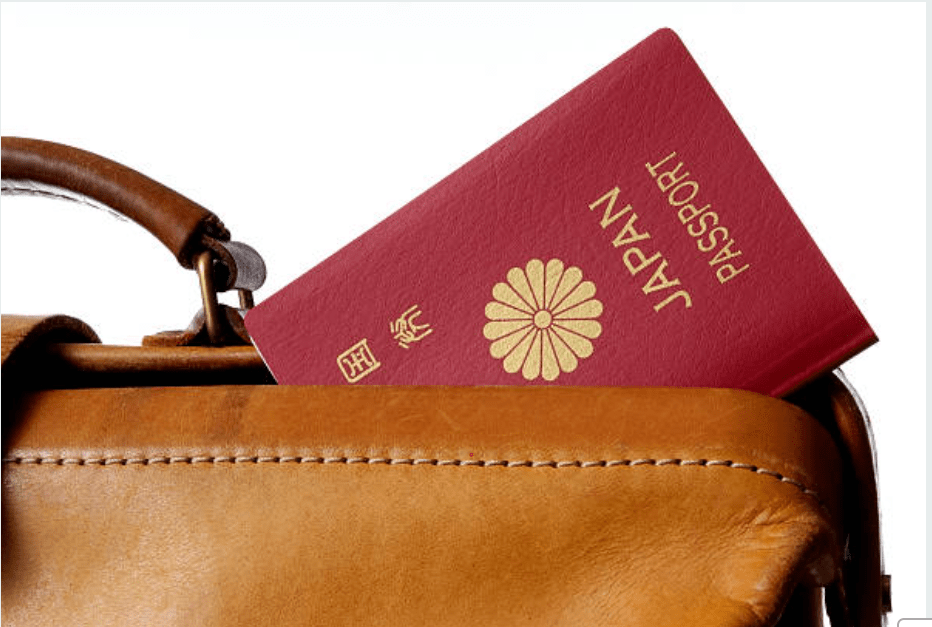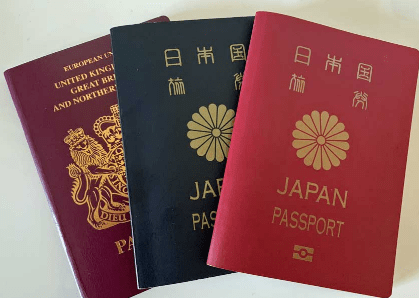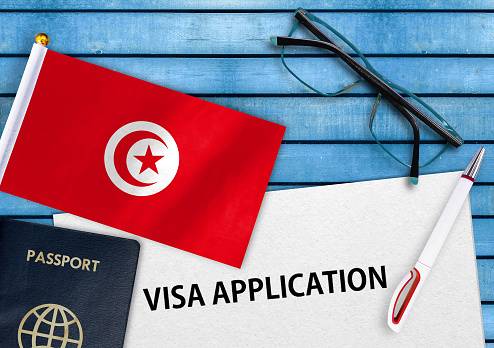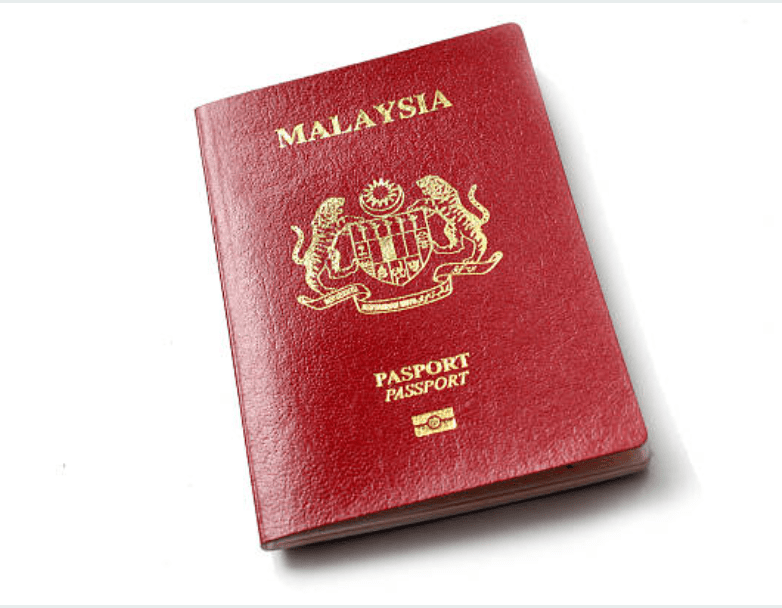How To Apply For Japan Visa
You will most certainly like traveling to Japan. Japanese culture is known for its politeness and punctuality, its wacky inventions like karaoke and vending machines, its natural attractions like cherry blossoms and Mount Fuji, its cutting-edge technology like Japanese cars and bullet trains, its popular anime and manga, and its mouth-watering food like ramen and sushi.
Most foreigners who wish to travel to Japan must first apply for a Japan visa.
Every year, tens of millions of tourists travel to Japan; in fact, more than 30 million people visited Japan in 2018. And this fascinating island country, which is a wonderful fusion of modernism, culture, history, and environment, has a lot to see. In addition, it is one of the safest places in the world to travel, and in 2020 it should be much simpler to get a Japan visa.
This page will cover the various types of Japanese visas, the application procedure, and other things you need to know.
When Do You Need a Visa for Japan?
Whether you must obtain a visa before visiting Japan depends on two factors:
- Your nationality: Citizens of several countries are exempt from holding a visa when they travel to Japan for short-stay purposes (tourism, social visits, business, etc). The policy allows them a visa-free stay of up to 90 days.
- The length and purpose of your stay: Even citizens of visa-exempt countries have to apply for a Japanese Visa if they want to enter the country for employment, studying, marriage, or any other long-term purpose, or purpose that requires them to work.
Types of Japan Visas
Foreign visitors can obtain the following primary categories of visas from the Japanese government:
- Short-Term Stay / Temporary Visa, which is issued to foreigners who want to enter Japan for tourism, visits, business, or other recreational or short-term purposes. Temporary Visas for Japan do not allow the holder to engage in employment and can be divided based on the purpose of travel into:
- Japan Tourist Visa, which is issued to foreigners who want to travel to Japan for tourism or visits to family or friends.
- Japan Business Visa, which is issued to foreigners who are traveling to Japan to attend a meeting, conference, negotiate, or for any other business-related purposes.
- Japan Transit Visa, which is issued to foreigners who are transiting through the territory of Japan on their way to a third country of destination.
- Long-Term Stay Visas, are issued to foreigners who want to enter Japan for purposes not related to tourism, such as working, studying, or joining a family member. As such, they can be divided into:
- Japan Work Visa, issued to foreigners who wish to take up paid employment in Japan.
- Japan Student Visa, issued to international students who have been accepted into a Japanese educational institution.
- Japan Marriage Visa, issued to foreigners who are married to a Japanese citizen and want to join them there.
- Japan Highly Skilled Professional Visa, which, as the name suggests, is issued to highly-skilled professionals who want to work in Japan. It is issued through a point-based system and offers a longer period of stay and more benefits than a regular Work Visa.
- Japan Working Holiday Visa, which is issued to citizens of countries with which Japan has a Working Holiday Scheme agreement. It allows young people from those countries to visit Japan and work there for up to a year.
How to Submit a Japan Visa Application
For the time being, the Japanese government only issues visas through its Embassies or Consulates abroad. As such, the process for a Japan visa application is as follows:
- Find and contact a Japanese Embassy or Consulate near you.
- Collect the required documents.
- Submit the Japan visa application.
- Collect the visa.
Please Note:
If you intend to apply for a long-term visa, you must first obtain a Certificate of Eligibility (COE) from a Japanese immigration office through a designated representative before submitting your visa application at the Embassy or Consulate.
Upon arrival in Japan with your visa in hand, you will be given a Landing Permit at the port of entry, rendering your visa invalid.
Contact the Japanese Embassy or Consulate
The first thing you should do when you decide to apply for a visa to Japan is to find a Japanese Embassy or Consulate in your country and contact them. Inquire about the required documents, opening and closing hours, and make an appointment.
If there is no Japanese Diplomatic Representation in your country, you have to:
- Find which Japanese representative office is responsible for your jurisdiction, such as one in a neighboring country, and apply there; or
- Find an accredited travel agency or visa application agency that will apply on your behalf.
- Some Japanese Embassies or Consulates only accept visa application submissions through third-party agencies, not in person.
Collect the required documents for a Japan Visa application
Once you are aware of the application location, you should begin gathering the proper documents for your Japan visa application. Depending on the type of visa you’re applying for, different documents are required, however, you must always provide:
- Your passport, should have at least two blank visa pages as well as be valid for at least another six months starting from the time you intend to enter Japan.
- Recent passport-size pictures taken in front of a white background
- A Japan Visa Application Form was completed and signed.
- Booked flight ticket.
- Proof of sufficient financial requirements, such as bank statements or a letter from a guarantor.
If you have a sponsor/guarantor in Japan, they have to provide you with the required documents on their part before you can apply.
Submit the Japan Visa application
Once you have all the proper documents, you must present them to the Japanese Embassy or Consulate for the application to be processed. If you are submitting your application through a travel or visa agency, you must provide the necessary documentation, and they will submit it on your behalf.
You could also need to return for an interview or to provide more documentation if the consulate or embassy deems it appropriate.
Collect your Japan Visa
Once your visa application has been processed, you have to go back to the Embassy/Consulate and collect your passport.
If the application was approved, the Japan Visa will be affixed to your passport and you can use it to travel to Japan within three months.
The Japanese Landing Permission
The immigration officers at the point of entry will go over your visa and the documentation proving the reason for your stay once you arrive in Japan, and (if they deem you eligible to enter Japan) they will issue you a Landing Permit. Your visa is replaced by the Landing Permit, which entitles you to legitimate residency in Japan.
A multiple-entry visa with a longer validity period continues to be valid even after you receive the Landing Permit, in contrast to a single-entry visa, which will expire once you receive the Landing Permit.
The Japanese Certificate of Eligibility (COE)
Everyone who enters Thailand to live there long-term, such as for employment, has to apply for a Certificate of Eligibility (COE) from an Immigration Office in Japan.
You have to apply for the COE through a proxy before you can apply for your visa at the Japanese Embassy / Consulate in your country.
What Is the Processing Time for a Japan Visa?
Normally, the Embassy or Consulate processes your completed application for a Japan visa within five business days of receiving it. It will take longer if they require more supporting paperwork from you. The processing period for your Japan visa may increase to more than a month if they need to refer it to Tokyo’s Ministry of Foreign Affairs for additional review.
Therefore, be careful to begin the application long before the time you want to go.
Japan Visa Fee
The visa fees for Japan are as follows:
- Single-entry visa: 3,000 Yen
- Double-entry or multiple-entry visa: 6,000 Yen
- Transit Visa: 700 Yen
The Japan visa cost may be slightly different based on your nationality, the type of visa you apply for, and the local currency. You have to pay the fee for a Japan visa at the Embassy/Consulate only if your application is approved.
Please Note: If you apply through an approved travel/visa application agency, they will charge you an additional service fee before the visa is issued.
Duration of a Japan Visa
The duration of a Japan Visa depends on the number of entries it is issued for and the purpose of travel.
- A single-entry Japan Visa is issued for a maximum of 3 months.
- A multiple-entry Japan Visa is issued for 1 to 5 years, depending on the purpose of your stay.
Can a Japanese Visa be Extended?
Depending on the type of visa you hold, you may or may not be able to extend a Japan visa (although, in actuality, what you would be extending is the Landing Permit, rather than the visa itself.)
It is unlikely that you will be granted a Japan visa extension if you have a tourist visa. If you came to the country for tourism, you can only request a visa extension if you have a legitimate reason, like an accident or severe illness.
You can apply for a Japan Visa Extension at your local immigration office in Japan if you came on a long-stay visa for a reason like work, marriage, or education. Application for a Visa Extension may be made beginning 90 days before your Visa expires.
Japan Visa Online
There isn’t a website that processes applications for Japan visas right now.
The 2020 Olympics were scheduled to be held in Japan, but due to the coronavirus epidemic, the Games were moved to 2021. The Japanese government had planned to introduce the Japan eVisa system after that. The epidemic has caused significant travel problems, including the Japanese eVisa, whose launch date is now undetermined.
The online visa was another attempt to help Japan reach its goal of having 60 million tourists visit the nation every year by 2030.
Japan Visa Requirements for US Citizens
You do not need to apply for a Japan visa if you are an American citizen visiting or doing business in Japan. US residents do not need to get a visa for stays up to 90 days. You may enter using your passport, which must have blank pages for the entry and departure stamps and be valid for at least another six months.
While in Japan on a visa-exempt entrance, you cannot work, study, or change the category of your stay. You must apply for the appropriate sort of visa from a Japanese Embassy or Consulate in the US if you have found a job, been accepted into a school, or wish to join your spouse in Japan.
I believe this page has fed you richly on how to go about applying for a Japan visa. You can start right away with planning your first or next trip to Japan today!
RECOMMENDED






